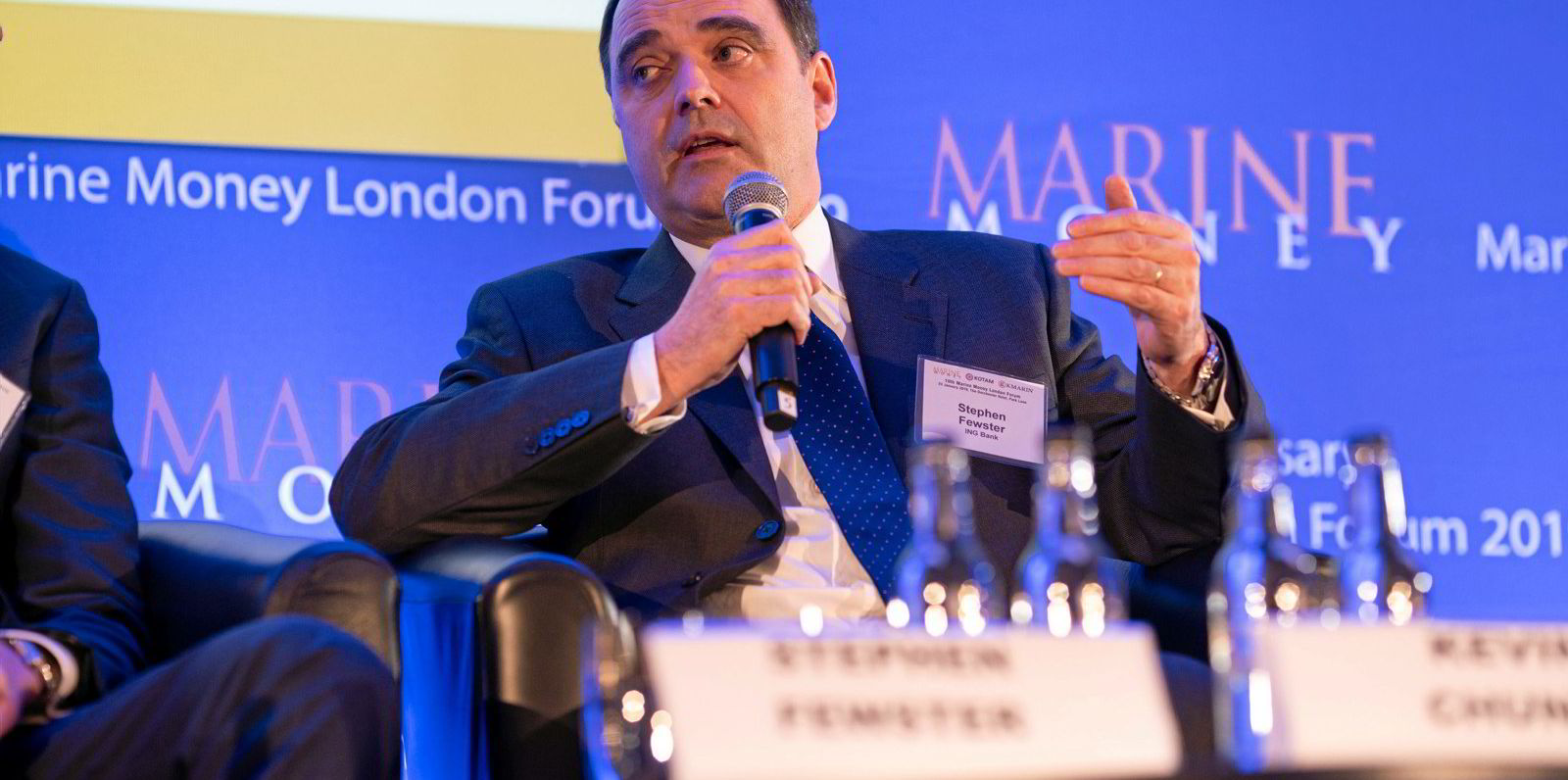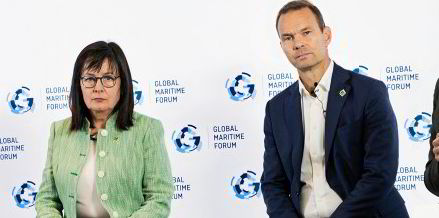Banks are compiling scorecards on shipowners to assess their environmental credentials before investing in newbuilds and retrofitting older vessels, a conference heard on Thursday.
Societe General said it rated every shipping client on measures including their commitment to net zero and the quality of its reporting on sustainability issues.
“This is risk management but also supporting the clients taking energy transition seriously,” said Paul Taylor, global head of maritime industries at the bank told the Marine Money Ship Finance Forum in London.
Taylor was speaking as part of a panel of banks signed up to the Poseidon Principles, a global framework to assess whether banks’ lending portfolios are in line with climate goals.
Shipping’s path to net zero relies on the development of green fuels, but the newbuilding market in the bulker and tanker sector has cooled in part because of uncertainty over what fuels will emerge.
That uncertainty has contributed to a historic low orderbook to fleet ratio in the tanker sector with owners unwilling to take a punt on a fuel that could turn out to be the wrong one.
Newbuilding order volumes shrank by 39% in deadweight terms in 2022 despite record ordering of LNG carrier newbuildings, according to Clarksons.

The conference heard that financiers were using the breathing space from striking newbuild deals to dig deeper into the performance of existing vessels to identify opportunities for retrofitting emissions-saving devices.
The industry needs to find a way to extend the life of ships – including cost-effective ways of swapping in replacement parts to improve performance and avoid scrapping, said Stephen Fewster, the head of shipping finance at ING.
“The industry is not good at that and it’s not even talking about that,” said Fewster.
Four years on from the launch of the Poseidon Principles, Fewster said that financiers had a bank of data that allowed them to make informed decisions on the best ways to retrofit and improve the performance of ships.
Fewster said it took seven years for the emissions improvements from eco ships to offset the “horrible carbon footprint” of a newbuild. “The world does not need more ships running on fossil fuels. It’s that simple,” he said.





